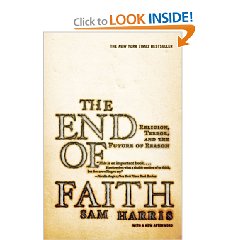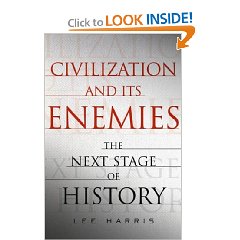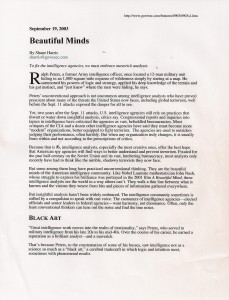
Very Important, Objective, Valuable, Relevant to Peace,
While I agree with the reviewer that sums it up as saying that religion in the form of blind faith does more harm than good, I would hasten to add that faith is an essential part of the American value system, and can do a great deal of good when channeled in partnership with a tolerant secular state. See my reviews of “The Left Hand of God,” “Faith-Based Diplomacy,” and “American Gospel.”
The alternative sub-title of this book could be “The Cost of Intolerance.” However–and I strongly recommend this book to the Information Operations and Public Diplomacy or Strategic Communication professionals–the author is brilliantly on point when he suggests that the third world war now happening is about beliefs–about good beliefs versus bad beliefs, about a need for a morality order of battle. As Robert Garigue sums up in his own original work offered as a technical preface to my book on Information Operations, war has moved to the semantic level, and we have to focus on identifying, containing, and then eradicating belief systems that are totally set against our once-balanced (not now) combination of secular state and diversity of belief.
It merits comment, as discussed in Howard Bloom's “Global Brain,” that belief systems, once embedded in a person older than 30, are not changeable. World War III is a war for the minds of those in elementary and secondary school. We have to contain or kill the adults who believe that martyrdom awaits those who kill “unbelievers.” On a positive note, the disciplines of psychology and neuroscience are now coming together (see my review of “Psychiatry, Psychoanalysis, and the New Biology of the Mind” by Eric Kandel). At the same time, the discipline of Open Source Intelligence (OSINT) is finally about to be funded properly, and we are within arms reach of being able to make sense of all information in all languages all the time.
Over-all the author agrees with those who say we are engaged in a clash of ideologies rather than civilizations. He notes that democracy can NOT be seen as a precursor to changing beliefs, for as we have found in Iraq, given a vote, most rabid Muslims would vote to give up their public liberties in favor of their blind and intolerant faith.
The author is compelling in also noting that poverty, among other high-level threats, is not the source of the conflicts that should frighten us with the prospect of being wiped out. It is about belief systems. He suggests that energy independence is actually a pre-requisite to gaining the economic leverage we need, while depriving the radical Muslim states of oil revenues they have consistently used to finance Al Qaeda and Hezbollah, among others.
Among the varied insights offered by the author I especially appreciated these:
1) Discussion of how evangelical Christians are penetrating the federal and state governments and subverting secular policy to fight “reasoned policy” and channel tax-payer funds to specific evangelical missions and churches.
2) A fascinating review of our skewed priorities, where we spend $4 billion annually to eradicate marijuana, which kills no one, while refusing to spend $2 billion one time to secure our ports, meanwhile ignoring the fact that alcohol kills hundreds of thousands.
3) Priceless quote, on page 165: “And yet, religious faith obscures uncertainty where uncertainty manifestly exists, allowing the unknown, the implausible, and the patently false to achieve primacy over facts.”
4) The author provides a very comprehensive review of both the Koran and the Bible, citing many specific passages, and concludes that even “moderate” Muslims are inherently trained to believe that “unbelievers” are to be converted or killed. This is, incidentally, the first stage of genocide, where the one to be killed is put into a class with vermin to set the stage for acceptable massacres.
The book concludes with a brilliant and provocative call for a science of good and evil, an ethics and science of the mind. The author states that truth is NOT just a matter of consensus or belief, and that some truths, in a human or reality sense, must be absolute. He calls for common sense and a sensibility of tolerance for others, while stating quite clearly that we must identify and kill those who threaten us “blindly.” He concludes that both torture and pacifism are wrong, and that principled moral engagement, one for all and all for one, is what is right. He supports non-violence where it works, but force is still needed for the greater evils that will respond to no other means.
The author documents the origin of the yellow star to “mark” Jews as having been in Baghdad, and only much later adopted by the Nazis.
The paperback version has a Question & Answer section that is not in the hardback original.
This is an extraordinary book, and should be–but of course is not–influencing those who would lead their Nation into a future of peace and prosperity. We have no strategy, no policy, only predatory capitalism fueled by militant unilateralism, and a Vice President who has usurped power from the President to pursue cheap oil at the expense of longer-term prosperity and peace. If ever there was a book to help us understand all that is wrong with America and the Muslims today, this is it.








